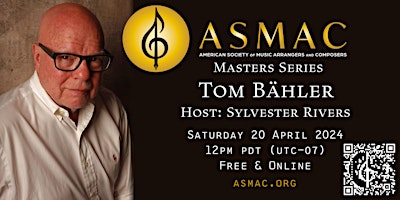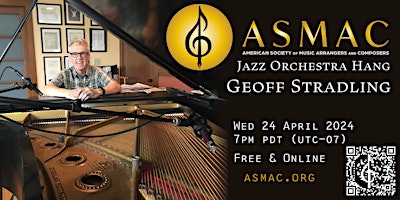Entertainment Attorney Jay Cooper’s Dire Predictions For The Future of Composers’ Rights
By Jeannie Pool
The guest speaker for the February 21, 2007 ASMAC was the well-known entertainment attorney Jay L. Cooper. Thanks to composer-pianist Deon Nielsen Price and filmmaker Glenn Palmer who helped to prepare the following report on Jay Cooper’s remarks.
Cooper was introduced by Van Alexander who said that Jay came to Los Angeles with a band in 1951. Shortly thereafter, he played saxophone with Alexander’s band amongst many of the big bands of the era. Soon Jay decided to go into law and how fortunate for him and for us that he did. Cooper began his address by saying the general situation in the recording industry is somewhat depressing right now. Record sales are down by close to a third in the last few years, there are very few deals and the companies are now looking for additional sources of revenue such as a portion of the artist’s touring income.
He spoke about issues surrounding copyright in the music industry with about as much optimism for composer’s rights as the future for dinosaurs just before the meteor impact that wiped them out. According to Cooper, all of this is due to several recent developments. The first culprit is the massive downloading that is taking place. The 19 to 25 age group no longer buys records, so we have a rapidly dwindling demographic. Physical piracy is rampant with replicating plants all over the world, and little can be done to stop it. Competition from video games is also taking the money away from purchases of new recordings.
There is also tremendous resistance to the artist being included in performing rights in the U.S. Only after a long struggle, performing rights for artists were established for webcasting. Cooper says we should advocate for performing rights for radio performances as well. The failure of having a performance right for musicians, in addition to not receiving income for the performance of their recordings on radio, is that those same artists are not receiving monies for their performances from the rest of the world which does have a performance right because of the US lack of a performance right which does not pay foreign artists for the performance of their recordings here in the US. Separate and apart, there is a proposed Orphan Works Bill in Congress which specifies that if one cannot find the owner of the recording, one can reproduce that recording without paying anyone until that owner is found.
Under the 1976 Copyright Act, the author of a recording has the right to terminate the original transfer of copyright to the record company 35 years after that transfer. Thus, if a recording was created and released in 1978 (the first effective year of the current copyright law), the author can reclaim that recording in 2013, subject to various notice provisions. However, the problem is very complicated in that we are not sure at the present time who will be defined as the “author”. Is it the featured artist, the producer, the engineer, the arranger or any combination of the above, including others? At some point, a court will have to define the word “author” in this context unless there is legislation enacted by Congress defining the same.
According to Cooper, there is a meteor shower on its way in the form of YouTube, My Space, and, from time to time, poorly conceived legislation wherein various organizations are constantly attempting to pass legislation limiting and/or severely restricting the effectiveness and value of copyrights. At this particular point in time, people from all walks of life are uploading to YouTube and My Space their own individual performances of other people’s copyrighted material to which they have no rights, so that any copyright owner has to be on alert 24/7 to stop the ever growing copyright infringements that are taking place all over the internet.
Due to all of these recent developments, Cooper’s advocacy work has been energized on behalf of artists’ rights. He continues to work pro bono with the Recording Artists Coalition, founded by Sheryl Crow and Don Henley, and now directed by Rebecca Greenberg, to create awareness in Congress of the continuing assault on the rights of the creators. In spite of his dire message, Jay L. Cooper gave a witty, and energetic presentation, answering questions from the audience in well-informed detail. Subsequent to his presentation, in a further conversation with me, he outlined the changing dynamics of the music industry and noted that much of the way business is being done today will be substantially different in the future, and his prognosticating that in the future much of the music consumed by the public will be via subscription to sites that have vast catalogs of content which not only will include audio but audio and visual content; and that much like people are paying for cable or satellite television today, whereas they used to always get it for free, he believes that people will get their music content by paying for such services on a monthly basis, giving them access to almost anything to which they want to listen or view.
Jay Cooper is a former President of NARAS, a Member and former President of the California Copyright Conference, Former Chairman of the American Bar Association Forum Committee on the Entertainment and Sports Industries, a Member of the L A Copyright Society, a Member of the Executive Committee and General Counsel of U.S.A. for Africa and Hands Across America, among many other organizations. He has authored numerous articles and was honored as the “Entertainment Lawyer of the Year” for 2003 by the Beverly Hills Bar and “Entertainment Lawyer of the Year” for 2006 by The Century City Bar.
According to a press release of the American Society of Composers, Authors and Publishers, The 109th Congress recessed for the November election without enacting into law any legislation related to copyright. The NMPA-spearheaded SIRA legislation that had been the product of two years of negotiations, Congressional hearings and meetings, as well as a determined ASCAP grass roots effort to help, was approved by the House Intellectual Property Subcommittee. However, it failed to be acted upon by the full House Judiciary Committee as a result of strong last minute objections from the National Association of Broadcasters. There was one victory that was important to creators, which was a tax measure allowing the sale of catalogues to be taxed at capital gains rates. ASCAP, along with other songwriter organizations, had supported passage of this tax measure. Other legislation, such as bills involving orphan works, broadcast and audio flag, taxation at fair market value of donated copyrighted works, were all left unfinished. The resolution of these issues is crucial to the future of composition and all creative work in music in our country.
The ASMAC luncheons take place the third Wednesday of each month at Catalina Bar & Grill and all are welcome. For more details, visit the website: http://www.asmac.org or call The Proper Image at (818) 994-4661. The April luncheon will take place April 18 and will feature Cheryl Foliart from Disney. The May 16 luncheon is “Honor Our Own: Chris Walden and Sylvester Rivers.”
ASMAC Board Member Jeannie Pool is a musicologist and composer who is a music consultant to Paramount Pictures Motion Picture Music department.



